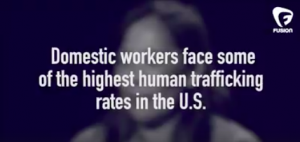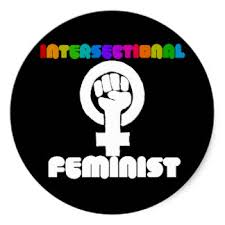The Moxies have officially approached the final week of the program. We survived, y’all. We survived the mind-bending, self-reflecting, radically-charged summer that we were all eagerly waiting to begin. I say “survived” not because this program was painstakingly difficult, but rather because we were on a non-stop rollercoaster ride that consisted of thorough confrontation with issues that are not always talked about in the oftentimes, impermeable Duke bubble. We discussed many, many things.
And if you’ve been keeping up with this year’s Moxie blogs, you’d know that we were consistently questioning the status quo and invited to acknowledge how:
- Our choices as consumers are leading to health issues amongst young adults on the other side of the world.
- Gender-based violence is fostered by a patriarchal system that socializes boys to be boys.
- Our negligence towards identity acceptance is killing queer people.
- Our justice system criminalizes poverty and race in the name of justice.
I can go on and on with this list, but in an effort to avoid laundry listing every single issue present on the face of planet earth, I’m keeping it brief. I was relatively familiar with these issues prior to beginning this program. However, I was not yet convinced that I could help in moving the world towards a more socially just future. Just when I was ready to watch the world burn (theoretically speaking), my acceptance to the Moxie program gave me that glimmer of hope that I needed to keep fighting the good fight. From reading feminist and social justice frameworks that are crucial to understanding our society, to working alongside resilient, and inspiring individuals at National Domestic Workers Alliance, my experiences this summer have provided me with yet more tools to critique the status quo and to see how I can do my part in practicing social justice in my life.
It’s a bit bittersweet to see our summer as Moxies coming to an end. But while our adventures end here, the knowledge we gathered this summer will be ever-present. And like every other cliché ending, I am inspired to say that this is not the end. It is simply the beginning to seeing the world with a fresh pair of eyes that -thanks to the Moxie Project- have been trained to re-examine what we think we know about the world and keep questioning the information we take as truth.




 deprive them of reproductive education and then expect them to “know better” when they face an unexpected pregnancy. But not surprisingly, those who catch themselves at a double bind tend to be women of color and women in poverty. Because they can’t travel long distances to an abortion clinic or even afford an abortion in the first place, they are more likely to subject themselves to dangerous methods that put their lives at risk.
deprive them of reproductive education and then expect them to “know better” when they face an unexpected pregnancy. But not surprisingly, those who catch themselves at a double bind tend to be women of color and women in poverty. Because they can’t travel long distances to an abortion clinic or even afford an abortion in the first place, they are more likely to subject themselves to dangerous methods that put their lives at risk.
 ed with my upbringing. She stated that in our society, “We teach girls shame… We make them feel as though by being born female they’re already guilty of something. And so, girls grow up to be women who cannot see they have desire. They grow up to be women who silence themselves.” This silence is then encouraged and praised, especially when society labels unspoken and unapologetic women as too loud, too ambitious, and just too much. Adichie was the very first woman who gave me the courage to claim the word feminism, and she was the one who fueled my desire to help dismantle prescribed norms that this patriarchal society imposes upon our bodies.
ed with my upbringing. She stated that in our society, “We teach girls shame… We make them feel as though by being born female they’re already guilty of something. And so, girls grow up to be women who cannot see they have desire. They grow up to be women who silence themselves.” This silence is then encouraged and praised, especially when society labels unspoken and unapologetic women as too loud, too ambitious, and just too much. Adichie was the very first woman who gave me the courage to claim the word feminism, and she was the one who fueled my desire to help dismantle prescribed norms that this patriarchal society imposes upon our bodies.